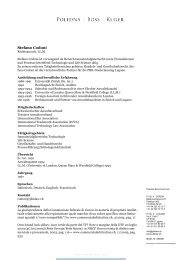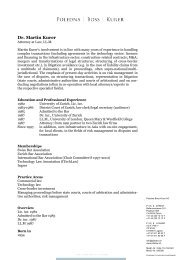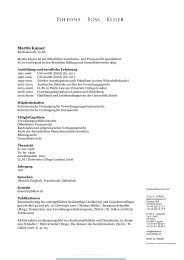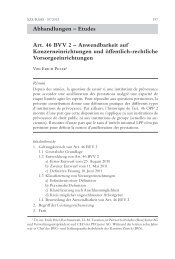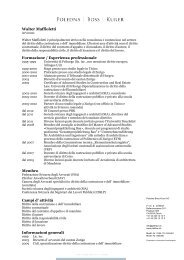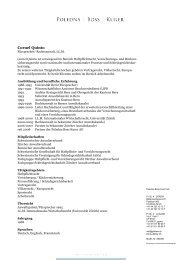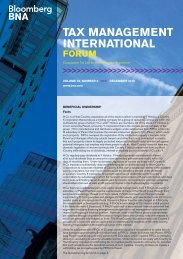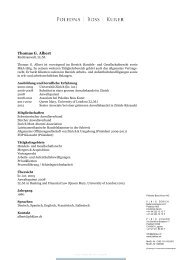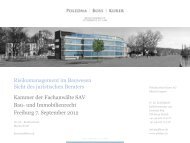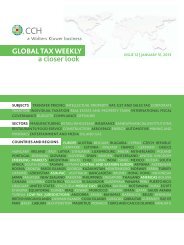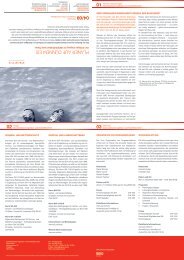721.8 kB - Poledna | Boss | Kurer
721.8 kB - Poledna | Boss | Kurer
721.8 kB - Poledna | Boss | Kurer
- No tags were found...
You also want an ePaper? Increase the reach of your titles
YUMPU automatically turns print PDFs into web optimized ePapers that Google loves.
X AG appealed against the tax assessments regardingthe federal corporate income tax for the fiscalyears 2005 and 2006 issued by the Zug tax administration.The appeals commission of the taxadministration approved the appeal and exemptedthe net financial income of X AG for the fiscal years2005 and 2006 from federal corporate income tax.The FTA, however, appealed against the decisionof the appeal commissions in favor of X AG withthe Swiss Federal Supreme Court.III. Findings Of The SwissFederal Supreme CourtTh e Federal Supreme Court considered that dueto the lack of an applicable double taxation treatybetween Switzerland and the Cayman Islandsthe matter had to be determined on the basis ofSwiss domestic tax law, respectively the FederalDirect Tax Act ("FDTA"), whether X AG's CaymanIslands PE did meet the requirements of aPE. The court determined that the legal basis forthe question at issue was article 51, paragraph 2of the FDTA. In the court's view the definitionset forth in said article applies to both the SwissPE of a foreign company and the foreign PE of aSwiss company.The afore-mentioned article defines a PE as a fixedplace of business through which a company partiallyor wholly carries on its business activity. The factthat X AG's Cayman Islands PE was a fixed placeof business had not been questioned by the FTA.Hence, the issue at hand was whether X AG partiallycarried on its business activity in said fixed placeof business as required by article 51, paragraph 2 ofthe FDTA in order for there to be a PE. This hadbeen denied by the FTA.In the court's opinion article 51, paragraph 2 ofthe FDTA does not set any requirements with respectto the quality or quantity of the businessactivity carried out in the fixed place of business.As a rule, any and all business activities of a companypermitted under its statutory purpose fallwithin the scope of a "business activity partiallyor wholly carried on in the fixed place of business,"irrespective of their importance. The PEdefinition of article 51, paragraph 2 of the FDTAis therefore wider than the PE definition of theinter-cantonal case law. However, when interpretingthe vague concept of a "business activitypartially or wholly carried on in the fixed place ofbusiness," one must first determine the functionof this unilateral rule of Swiss domestic tax law.In so far as a Swiss PE of a foreign company isconcerned, the unilateral rule determines to whatextent Switzerland may subject the net profit ofthe foreign company to Swiss taxation. In the reversecase of a foreign PE of a Swiss company theunilateral rule determines to what extent the netprofit of a Swiss company must be exempt fromSwiss taxation. Hence, depending on the factualsituation, the unilateral rule of article 51, paragraph2 of the FDTA pursues a different objective.In the court's view unilateral rules that aimat avoiding double taxation are to be interpretedin favor of the Swiss taxing power. In case oftoo extensive a Swiss authority to tax, the double6



